
You’ve landed yourself a job interview and are well-prepared with all the answers to the questions your employer may ask you during the job interview. Everything goes smoothly, and those practice sessions that you had with your mirror did not go to waste.
As the interview is coming to an end, everyone, including your future employers have a big smile on their face. But suddenly, you’re hit with quite the awkward question (with very little time to think it through): “So, what’s your expected salary for this job?”
This is such a simple question, yet it still remains one of the most dreaded ones for most candidates, as your answer might make or break your job application. But fret not! Today, we’re going to prepare you to answer this crucial question in every job interview.
Before knowing how to answer the question, you first need to know the motive behind it.
If you don’t already know, every company will allocate a fixed amount of funds for specific jobs. In other words, they have a budget to adhere to, before they can actually hire you, so they have to ensure that both parties are aligned with their expectations.
Candidates who expect a significantly higher salary than other applicants may suggest that they’re overqualified for the role they’re applying to. Similarly, if you’re giving a lower amount of expected salary, it could hint to your employers that you might lack the experience needed for the job.
With the list of job experiences and skills on your resume, your employers may be assessing how much you think you’re worth in the relevant markets. Promising applicants will give an appropriate amount of how much they believe they’re worth.
Most of the time, it’s very difficult for candidates to answer this kind of question, due to the nature of the hiring process. Imagine giving a number that’s too high. Your potential employers might just skip you over, and choose a candidate who has targeted a lower salary range.

However, if you’re giving too low of a number, your employers may try to push it to an even lower amount during the negotiation phase, and that’s definitely not going to work in your favour in the long run, especially if your workload keeps increasing down the line.
Knowing that, it’s still difficult for a candidate to give a near-perfect answer before knowing the full job description, or the company’s budget for the role that’s being applied for. While there may be no right answer to this question, there are ways that you can better prepare yourself for it.
To know the company’s budget in hiring you, you first need to know the average market salary. Take note that different locations may have different salary ranges, even though you’re applying for the same job. You can also look into the wages of the people who are currently working the job you’re applying to, and see how their experiences and educations affected their salaries.
When you’re answering what you’re expecting of your salary, it shouldn’t be solely based on just your experience and education. You should take into account the expenses you might have in taking the job. Suppose the job requires you to relocate or travel a great distance to a specific area where the company is located. In that case, you should ask for the cost of relocating or travelling in the form of direct compensation, or for the amount to be included in your salary.
Candidates tend to offer a specific number when it comes to the expected salary. However, providing your employers a range in which you’d like to earn is also a viable option. If you decide to offer a range, remember to keep it tight, rather than wide. If you’re expecting to earn $5,000 a month, it’ll be wise to offer a range between $5,000 to $6,000 as your expected salary.
Your gross remuneration shouldn’t be the only thing you’re considering and negotiating in a job interview. If you’re up for it, your employers may be willing to bridge the gap between the salary they’ve offered and the salary you’re expecting with other benefits and perks, which are just as valuable!
Sometimes, even in the early stages of the hiring process, you might already be asked about your expected salary by the hiring manager. As always, this hard-to-answer question is even more challenging to answer when you’ve yet to grasp the full understanding of the details of the job or position you’ve applied to. Don’t worry. It’s perfectly normal for you to deflect this question, but you have to do so tactfully (refer to Example #3 below).
As mentioned previously, there are multiple ways in which a company may compensate you, which include health benefits, annual leaves, stock options, flexible work arrangement, and perhaps even a free laptop. Although it doesn’t seem much at first, these types of compensation are equivalent to your ideal salary, and are able to provide you with a more balanced work-life.

Thank you for asking this question. While I am flexible when it comes to the range of salary, I am looking to receive between [Amount A] and [Amount B] annually/monthly. I believe that with my set of skills and experience level, the range I provided would be comfortable and appropriate for this position.
I am expecting to receive a baseline of [the amount] annually/monthly. I believe that with the expertise and skills I can bring to this role, the amount I suggested is an appropriate salary. Is this in line with your expectations?
Before I give you an answer, I feel that it will be more appropriate for me to give a range after I get more acquainted with the position and company, so that I’m able to provide a more accurate amount that fits both of our expectations.
Once you grasp the average salary range for the position you’ve applied for, consider giving a higher amount. In most cases, your employers are going to try and negotiate so that they can offer you a lower amount, in which the amount might still be making your targeted number.
Giving an exact amount to your hiring managers may suggest that you aren’t open for negotiations. Hence, it’s best to provide the range of your expected salary instead.
While it doesn’t hurt to share how you arrived at your expected salary, don’t bore them with too many details of the deep thinking process you’ve had before coming to the number you’ve given! You can justify the amount of your expected salary by describing your past experiences, including education, and how these experiences and knowledge can aid the company. Remember, try not to give too high of an amount for the role, or you could be considered overqualified.
And by ‘sweet spot’, we mean the middle ground/happy compromise that your negotiations with the hiring manager should arrive at! While you can do your best to ensure that you fit within the hiring budget of the company you’re applying for, at the end of the day, the decision still lies with the management. At least you can come away from the interview knowing that you’ve put your best foot forward, and didn’t sell yourself short. Good luck!

There’s no definitive way of describing an ‘ideal employee’. A particular trait can prove to be both advantageous or detrimental for a designated post. For example, an employee with leadership qualities is usually valued by organisations worldwide, and is one of the most important parts of leadership is being assertive. But, at the same time, when working within a team setting, being overassertive reduces the cohesiveness and the effectiveness of the team.
Hence, while there are no clear-cut criteria for selecting candidates, there are a few traits that employers value when hiring employees. So, which would make a candidate stand out in the eyes of companies? And, as a candidate, how can you highlight those personality traits in your CV? Let’s find out!
Character traits are different aspects that constitute our personality. When selecting a prospective employee, the recruiter pays special attention to the character traits which will not only suit the job, but will ensure that the employee fits into the company culture.
Hence, it’s important to highlight those particular personality traits that would help you secure an interview call, and eventually get the job. This is one of the reasons understanding the job requirements and researching the company before applying is so important.
How do character traits come into play in the selection of a candidate? For instance, a person who displays confidence, adaptability, has good listening skills, and is diplomatic indicates they’ll make a good leader. Similarly, character traits such as dependability and humility signify that a person is a good team worker.
And, a healthy dose of independence guarantees that a person can function well, even without supervision! These are just a few examples of what character traits employers look for when filling a particular job position.
There are actually a few personality traits that are standard, which can be applicable for all kinds of jobs. If you have these and can properly highlight them in your CV, they’ll increase your chances of getting that coveted interview call.

Highlighting your character traits in your job application will always give you an edge over the other candidates. Here are tips on how you can present your character traits to potential employers:
Make sure you hone the above-mentioned character traits, and utilise the tips given here to highlight them when applying for a job. You never know, in a crowd of equally suitable and qualified job applicants, highlighting your character traits might just be the only thing that tips the scales of getting the job in your favour!

For centuries, it has been common practice to classify different types of workers by the colour of their shirts, or “collar” colour. These designations mainly include blue or white collar, but you may have also heard of pink, green, or gold collar workers. Our minds conjure up different, distinct images when we think of these different types of classifications, as we use these to classify the different types of employment and the nature of work.
Blue collar jobs are typically associated with manual labour out in the field. Whereas white collar employees are usually seen in the office setting. These terminologies are derived from the attire worn by these workers in history. Blue uniforms were common among manual laborers, and white dress shirts were common among office workers.
The distinction between the various collar colours nowadays is mostly symbolic rather than a description of present attire. Although seldom used formally, they come up in ordinary conversations and political debates, so it’s crucial to understand the differences. Understanding how they compare with each other also helps job seekers to tailor their job searches to better suit their particular set of skills and profession.
The term “blue-collar” originated from the beginning of the twentieth century, referring to the blue chambray, overalls, and denim garments that were typically worn by manual laborers at the time.
Rather than sitting at a desk, these personnel get work done by utilising their physical abilities. Due to the nature of their work, which generally results in soiled uniforms at the end of the day, dark-coloured shirts were a practical option for these personnel. The dark colour was shown to effectively conceal stains, grime, and other things that may soil work attire. As a result, companies began making more blue uniforms, and blue uniforms have remained a standard until this day.
When we talk about blue-collar employees, we’re typically referring to a segment of the workforce that relies on physical labour or industrial jobs to make a living. They’re also sometimes referred to as the “working class”. As a result, blue-collar work usually does not necessitate a college diploma, but may require a high school certification. Hourly pay is common among blue-collar jobs, but more advanced roles do offer fixed income positions.
Blue-collar labour can be further broken down to “skilled” and “unskilled” workers, where “unskilled” here simply means that the job can be done without prior experience or specialised education and training. Blue-collar employment can be found in a variety of settings, including workshops, factories, offices, houses, public areas, and outdoor locations. Some examples are:
White-collar personnel describe suit-and-tie workers who work at a desk or other office-based, administrative, clerical, and managerial roles.
Technology, accountancy, sales and marketing, and consulting are some examples of industries with a large number of white-collar positions. Nowadays, some of these roles can even be carried out from home.
Stereotypically, white-collar workers eschew physical labour as they rely more on mental rather than physical exertion to perform their duties. These employees usually work regular 40-hour weeks and have a set income and benefits package. Although white-collar roles are often thought to pay more than blue-collar jobs, this isn’t necessarily always the case.
Whether it’s a professional, managerial, or administrative role, white-collar workers are almost always required to have some level of experience to qualify for the job. This can either be a college degree (usually a bachelor’s degree or higher), or professional experience from a previous position. White-collar jobs may be diverse, yet the majority of working environments are similar. Examples include:

“Pink-collar” refers to any field that has historically been dominated by women. These jobs were once deemed “women’s work” in the sexist society of the (not so long ago) past. This classification is fraught with controversy, from disagreements about when the name was coined to its discriminatory connotation.
Today, the modern definition of pink-collar is used to categorise both men and women in the service industry or any roles primarily dealing with people. Although many of these jobs are still held by women and can often be lower paying than white- or blue-collar jobs, things are changing.
Pink-collar jobs include hair stylists, dental hygienists, flight attendants, restaurant servers/waiters, retail assistants.

A new trend is emerging in today’s employment landscape, due to growing concerns surrounding environmental issues and sustainability. People are ditching conventional jobs for green-collar jobs that safeguard the future of our planet by boosting sustainability efforts, reducing energy use, waste and pollution.
Green-collar sectors comprise of alternative fuels, energy efficiency, public transportation, and recycling, to name a few. They can range from small businesses to larger corporations or even non-profit organisations. Nevertheless, these roles are difficult to define as they range from manual to managerial. Green-collar positions are known to offer better opportunities, in terms of career mobility and higher wages.

With the rise in importance placed on a candidate’s practical skills (especially those gained in previous employment) rather than their four-year degree, the term “new collar” was coined to reflect this shift in hiring managers’ priorities. In other words, new collar jobs are newer, mostly technical jobs requiring a special set of skills, and do not necessarily require a college degree.
Besides tech roles, new collar workers can also be found in healthcare and mortgage sectors. New collar jobs include information security analyst, software developer, pharmacy technician, project manager, etc.
Traditionally, gold-collar workers are in the same classification as white-collar workers, but have grown so important to business operations that they warrant their own categorisation. These roles are highly skilled and in high demand. For instance, lawyers, pilots, surgeons, engineers, and anaesthesiologists are examples of gold-collar positions.
Red-collar workers are the easiest to define, as they refer to all the types of government employees.
Information technology (IT) professionals, for example, are skilled workers who fall in both the white- and blue-collar classifications, and therefore are known as purple-collar workers. These are primarily white-collar workers who occasionally perform blue-collar responsibilities, such as technicians and engineers.
Society has been known to judge people based on their vocation or career path. We commonly make judgments about an individual’s intelligence, personality, aptitude, and value based on the type of job they do, and the collar system puts people into categories from which we can further cast judgment.
However, as job categories merge and now require a combination of skills and strategies, society will benefit from combining all the colours of collars, and simply evaluating people based on who they are and the benefit they bring to others, rather than the type of job they do.
It doesn’t matter who earns more or who has the better job, all the different kinds of collars are equally as important and deserve the same respect! After all, not everyone shares the perspectives of what constitutes “better” or “worse”. At the end of the day, we all depend on each other to keep the wheels turning. A healthy society acknowledges that one end depends on the other, and vice versa.

Many reasons could lead to someone’s decision in leaving their job. Whether it’s new opportunities or personal reasons, a resignation is something to be expected. In fact, Microsoft estimated a whopping 40% of the global workforce are thinking of resigning from their current jobs, citing the pandemic-induced burnout as one of the many reasons. But what does tendering your resignation means?
Tendering your resignation refers to the act of notifying your boss or reporting manager that you’re leaving your job and resigning from employment in the form of a letter, email, or a face-to-face meeting.
Typically, your notice has to be passed to your immediate superior in advance, depending on the time stipulated in your employment contract, which can range anywhere from two weeks to two months. The rationale for an advanced notice is to ensure a smooth transition, including workload distribution among your team members and to allow the company sufficient time to search for your replacement.
To maintain professionalism and the interest of all parties involved, it’s highly recommended that a resignation process be carried out courteously.
Here are some tips that you can keep in mind to help you leave your job on a good note:
One of the best ways to leave a good impression on both former and future employers is by putting your resignation in writing. For an office or corporate job, this is often required as per your employment contract. This is usually done by drafting a formal dated letter addressed to your reporting manager and signed by you, including your personal details and information on your final day at the company. If you’re unsure whether to hand in your letter physically or via email, you can plan ahead by speaking to the HR department.
With that said, regardless of the type of job, providing a resignation letter reflects respectability between both parties. Aside from that, putting things in writing ensures that there’s a paper trail proving that you’ve given sufficient notice as required, and assists the HR department with document organisation.
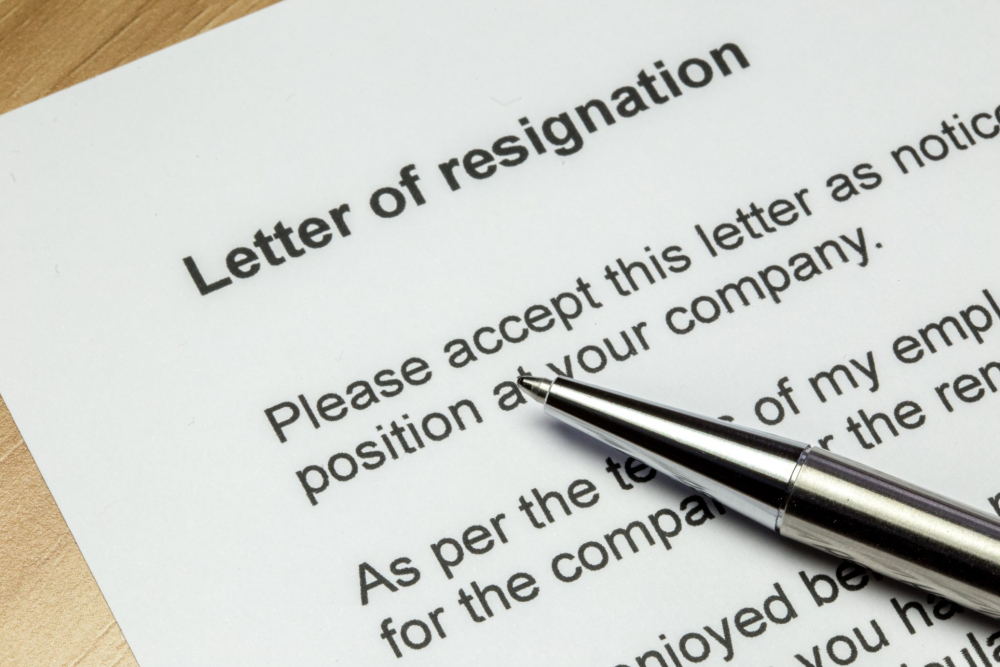
In your resignation letter, be sure to explain your reason(s) for leaving your current position in the company.
For example, if it’s due to a new job offer, you can highlight how the current role has not only helped you to add value to your career journey in the form of experience and network expansion, but also allow you to contribute your skills in return.
If you’re leaving due to personal reasons, you may or may not feel comfortable sharing the exact details with your employer. As such, keep it simple, straightforward, and ensure that it’s worded politely.
For example, you can point out that while you had a highly enriching experience in your employment, you’re unable to carry out your duties and responsibilities due to personal reasons. Additionally, highlight that the company’s best interests has been taken into account in helping you to decide, and offer to assist with the handover process during your notice period.
Depending on your circumstances, you may also schedule a meeting with your supervisor to further discuss this in person. On top of a written notice, a face-to-face meeting shows willingness and added professionalism on your part to ensure a smooth transition throughout the resignation process.
You can talk about the handover process and confer on how to best distribute your previous work amongst your colleagues. In addition, scheduling a meeting will help maintain your rapport with your boss and leave a good impression once you leave your job.
When planning your resignation, remember to take into account the terms of your employment contract. Be mindful of details such as the notice period as well as any documentation that you’ll have to submit.
If you’re planning to schedule a meeting with your boss and/or HR, you can discuss this part of the resignation to clarify any doubts that you have, regarding the terms of your contract.
If your employment is not covered by a contract, this is a great opportunity to further discuss with your reporting manager on the relevant process and procedures.

This is one of the most important parts of the resignation process! Once you’ve decided and handed in your notice, it’s tempting to let your current workload go unheeded, and run its course.
However, this is where teamwork plays a crucial role to facilitate the transition period. Plan and discuss with your boss and colleagues, especially direct team members, on the distribution of tasks and responsibilities that they’ll have to take over from you after your departure from the job.
Dear Mr/Ms [Name of reporting manager/supervisor],
Please accept this letter as a [notice period] notice of my resignation as [role] at [company]. In accordance with my contract, my notice period will end in [duration] on [date].
Recently, I was offered a promising role, that will be a great opportunity for me to further enhance my skills in [relevant skills].
I would like to extend my gratitude to the [senior management] for giving me the chance to be a part of a company that has fostered my professional growth for the past [duration of employment]. I appreciate the continuous teamwork, advice, and support that we have shared throughout my time in the company.
Please let me know how I can be of assistance during the transitional period, in ensuring a smooth and seamless handover process.
Sincerely,
[Your name]
Dear Mr/Ms [Name of reporting manager/supervisor],
I am writing to inform you of my resignation from the role of [role] at [company].
I have recently accepted an up-and-coming opportunity which would further encourage my professional growth, particularly in [relevant skills].
Whilst I am looking forward to my journey ahead, I would like to firstly thank the Management for giving me the opportunity to contribute to the workings of the company and learn essential skills, as well as expand my professional network along the way.
During my transitional period, I would like to offer my assistance to facilitate a smooth handover process.
Sincerely,
[Your name]
Dear Mr/Ms [Name of reporting manager/supervisor],
I am writing to formally inform you of my resignation from [role] in [company]. Due to unanticipated personal issues, I have decided to hand in my [notice period] notice. My final day will be on [date].
During my time here, I have learned skills and given opportunities that I would not have been given elsewhere, had I worked with a different team or report to a different supervisor. I would like to extend my gratitude to everyone who has made my time here memorable.
With that said, I would also like to offer my assistance with the handover process, in ensuring that my replacement is well-informed of the tasks and projects at hand.
Best wishes,
[Your name]

Here’s how you can help in ensuring that your team can proceed seamlessly once you leave the company:
What are your daily tasks, what do they entail, and how do you execute them? Running through the details with team members assigned to take over your duties will help them understand it better. What’s more, it’ll help keep them up to speed when they perform them.
Showcasing the progress of your projects in a meeting will enable your teammates to visualise them, but the key to a smooth transition is by compiling them into one comprehensive file. Document the steps that you’ve taken for your role in the projects. Include a brief of the project and details on how you’ve contributed, plus the exact section in which the project is being put on hold to ensure a smooth transition for your departure.
While a compromise can be worked out for certain tasks and projects, some of them may still require your input, given your experience in handling them. Be sure to go over these pending tasks with your boss and team members, for which you’re required to complete during the notice period.
One of the crucial things that you can do to ensure a smooth transitional period is by taking note of essential contacts related to your current tasks or projects. This could be in the form of a detailed list, so the particular colleague taking over your role will be well-equipped with as much information prior to your departure from the role.
It’s important to manage expectations with team members who’ll assume your responsibilities after your resignation. The notice period will help buy you some time to make sure that all parties are in mutual understanding and agreement of the individually assigned duties.
To sum up, tendering your resignation can seem like an overwhelming process as you may or may not have to deal with a considerable amount of paperwork. Even more so if you need to slowly hand over your tasks to people whom you’ve worked with for a long period of time and have built a strong bond with. However, documenting your resignation process ensures a seamless process for your former employer to plan their future employment, and helps smooth your career transition.
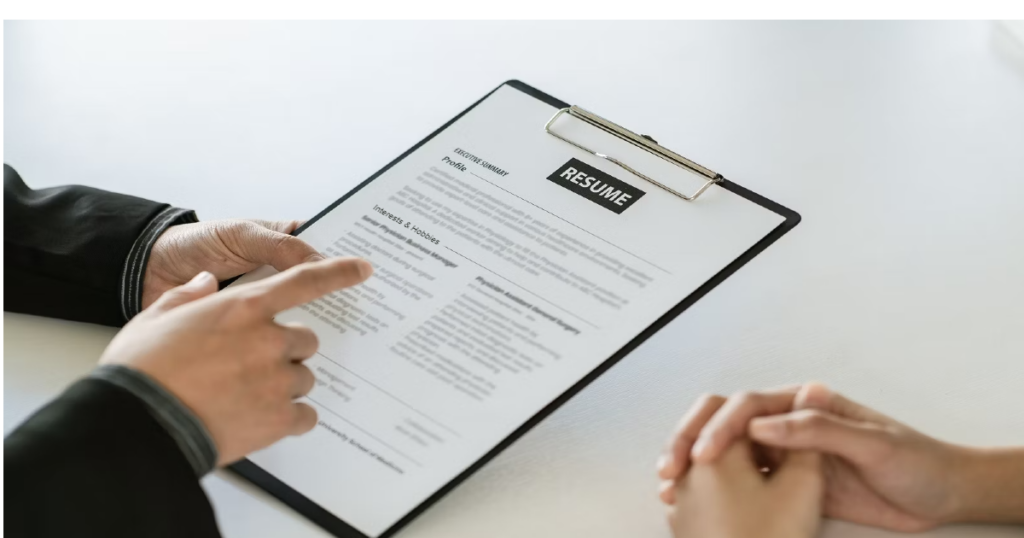
Is it really necessary to list your hobbies and interests on your CV/resume? You’re not going on a date! When you’re preparing a professional CV, including your interests and hobbies may not be the first thing that springs to mind; after all, it should be professional. However, doing so may actually help to strengthen a CV in a number of situations, even (or especially) when you have little or no professional experience.
Some recruiters or employers even prefer resumes with hobbies on them since it paints a more complete picture of the candidate as a person. But, what exactly are your hobbies and interests, how can it help you to achieve your career goals, when is the right time to do so, and how can you list them to stand out of a crowd of competitive candidates? We’ll be looking into all of that and more here!
Hobbies are pastimes or activities that you do on a regular basis in your spare time generally for enjoyment, but they may also be a wonderful way to supplement your income. It could be anything a person chooses to spend their time doing when they are not working like engaging in creative and artistic passions such as music, dance, art, reading, pottery, or any kinds of sports.
Interests are subjects or topics that pique your interest and make you want to jump down the rabbit hole to uncover all there is to know about them or spend your free time participating in activities related to them. They have more to do with exploring ideas, knowledge, and different concepts. For instance, you might know some people with an interest in social work, pop culture, history, or even conspiracy theories. As you can see, both hobbies and interests are things that you like to do for fun outside of work. So why do employers want to know about them?
Your CV tells the tale of your education and profession, while your hobbies and interests section shows a bit more about your personality. They inject some colour into your CV and demonstrate how you would be a good cultural match for the company. It could also offer some great talking points during the interview, which could lead to bonus points and your interviewers will certainly remember you. Other candidates will have the same professional and academic sections, but we bet you may be the only stamp collector!

Candidates lacking adequate job experiences such as fresh graduates should include a hobbies and interests section so that the potential employer can have a better idea of who you are outside of work. It paints a more complete image of yourself and may even display certain soft skills that would be a good fit for the organisation. For instance, if you enjoy spending weekends doing social work, it’ll show that you are an empathetic person who can work well in a team (organisations love team players) and do not mind dedicating your free time to helping others.
On the other hand, if you’ve already accumulated a long list or a few years of job experience that can adequately demonstrate your professional abilities and credentials, and your one-pager CV is almost filled to the brim, you can definitely skip this section!
Generally, recruiters will take your hobbies and interests into account once you’ve ticked all the other boxes. You should include them to supplement your other information and seal the deal, instead of being your main selling point. What this means is you should include this section towards the end of your CV for a good flow. To prevent boring your reviewers with even more words, present them in a bulleted list of short phrases.
You can also elaborate a little bit more on every point, but keep it short – something like a headline that your interviewer may ask you about if they want to know more. You can also choose to leave it out altogether, but be prepared to elaborate in person! Here are some examples:
It is also crucial to make sure that the hobbies and interests you list on a resume are relevant to the particular job description and organisation’s culture. Yes, this means that you should avoid using a generic section to apply for every role. You can find this out by going through the job description a few times and doing more research into the company you are applying to. It also goes without saying that you should be authentic rather than fabricating a slew of anecdotes just to impress your future employer. There’s nothing worse than being caught in a lie! Having said that, you don’t need to be an expert on the topic, as long as you have a conversational grasp so that you won’t get caught off guard during the interview.
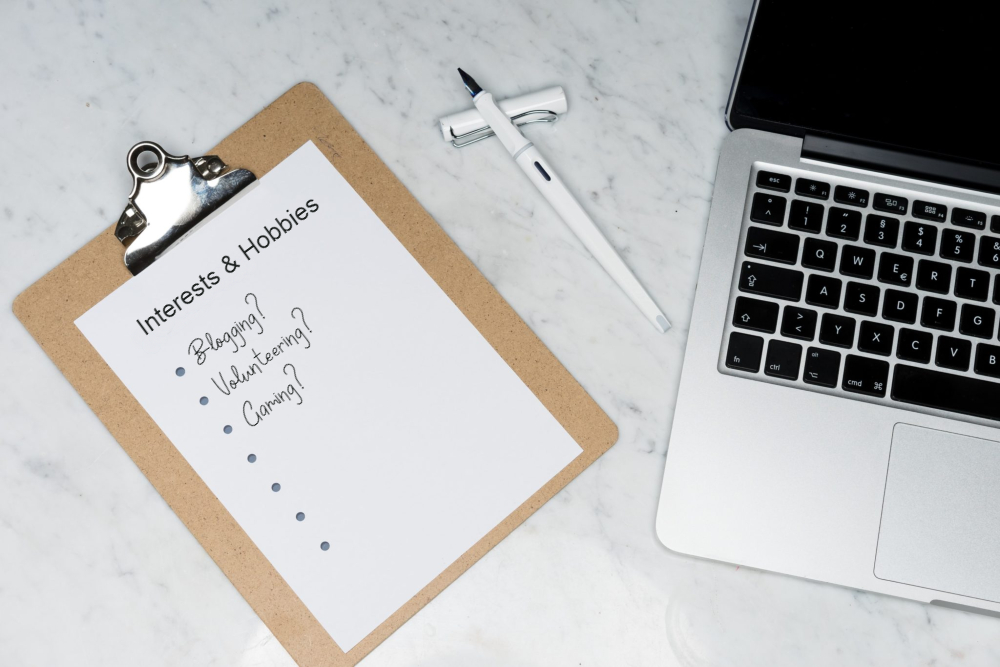
When it comes to relevance, the things you do in your spare time do not have to be a perfect match for the job you’re looking for. There may also be other transferable skills that could be relevant to your application. Let’s say the particular job description requires a team player and you play dodgeball competitively in a team every weekend, letting your potential employer know this will show that you can excel working in a team. Here are some examples:
Stating your personal hobbies and interests on your resume isn’t a common requirement for most job applications, which is why you should put it at the very end as something extra that your potential employers can consider. If you do decide to display them, remember to first find out more about the particular organisation, its culture and its people, so that you only include the most relevant ones that would let them know instantly that you would be a perfect fit.
Success at your workplace may be influenced by a variety of elements, including how you choose to spend your free time outside of work. After all, if you want to live a balanced and fulfilled life, you must devote your time to both professional and artistic pursuits. Hobbies and interests can spark new interests, drive inspiration, promote networking, and encourage new ways of thinking. Learning new and interesting things make you a far more fascinating person, which can do wonders in fuelling your growth in other aspects in life, including your career.

We all know that it’s important to have your skills highlighted in your resume. But did you know that to improve your chances of receiving an interview call, the skills you put in your resume should match the job you’re applying for?
Employers usually seek applicants with a set of predetermined skills. Hence, if you have similar skills, highlighting them makes your resume stand out, thus increasing your chances of receiving an interview call. But what skills should you highlight and how? Don’t worry, we will answer all your questions in this article!
Most corporations have adapted to a digital framework for functioning, and the same is applicable for recruitment. Companies around the world are reliant on the Application Tracking Systems (ATS) software for screening resumes and finding the best candidates who meet their requirements and expectations.
Companies receive thousands of applications daily, almost 75% of which fail the ATS test because of incorrect formatting and keyword optimisations. The ATS screening involves scanning an applicant’s resume for relevant information like background, qualifications, work experience, skills, and more. Through an automated process, the ATS scan saves a lot of time and effort by eliminating candidates who do not meet the predetermined qualifications.
The ATS scan, helpful as it is, can reject qualified applicants on the virtue of having a resume that’s not designed as per the ATS readability standards. Here are some tips to ensure you pass the ATS screening:
Confused about that last point? Let us explain it better: The ATS Scan filters out candidates by parsing individual resumes for particular keywords. For example, if you’re applying for a content writer role, keywords such as ‘content writing’ or ‘editing’ might be helpful.
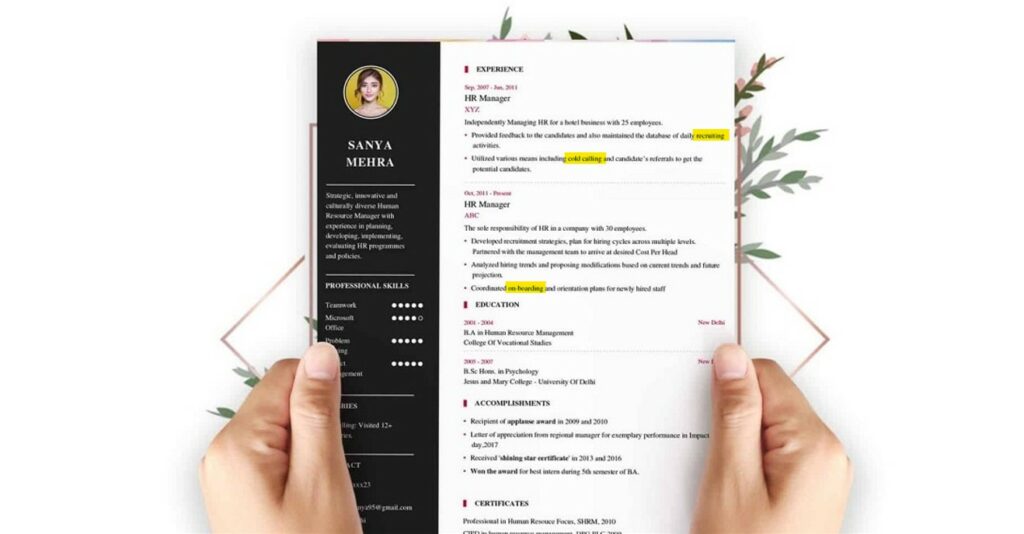
Simply put, choosing the terms that are widely used to describe skills in association with your desired post can help you pass the ATS scan. Make sure to use keywords that represent both soft and hard skills to significantly improve the odds in your favour.
While most corporations use the ATS Scan in the preliminary screening stage of applicants, some companies are reliant on manually assessing resumes, usually done by the HR Manager. With the resume reflecting the candidate’s skill-set matching the predetermined job requirements, there’s a higher chance of getting selected by the HR Manager.
Now that you know how the ATS scans for keywords and why you should add skills to your resume, it’s important to discuss how to identify the skills that are best suited for your desired position.
The right skills can help optimise your resume and are likely to grab attention in the recruitment process. Having said that, it’s not easy to figure out to right skills to highlight for a job. The following steps can greatly help:
To get started, it’s important to recognise your skills and assess your strengths and weaknesses. Identifying individual strengths and weaknesses can arise out of personal insights gathered from previous work experiences and the skills that were required by previous jobs. Once you have an idea of your potential and limitations, you can list down your key skills accordingly. You can also discuss with your peer groups or someone you know personally. The perspective of an outsider can often help in identifying your key skills, abilities, strengths, and weaknesses.
In any industry, it’s essential to have common skills and technical expertise that are specific to a profession. Every profession requires certain skills that help achieve the goals and deal with work-related tasks. Depending on the industry and the profession you’re aiming to work for, you must research and look into the common skills they demand. This helps pick up new skills, as well as improve older skills to use them proficiently. Taking the example above, if the content writer role requires a skill that you don’t have, such as WordPress familiarity, you can learn it before applying for the job.
Every profession comes with its requirements, professional entitlements, and responsibilities. Therefore, while applying for a job, it’s crucial to stick to the job description. This gives you a clear idea of what your job demands, and being able to meet the requirements mentioned in the job description gives you an edge over other candidates. You can write your resume accordingly to highlight your personal and professional skills, connecting them to your job description, and how your skills can be utilised in a way beneficial to the job.

Skills that you can mention in your resume can be broadly classified as hard and soft skills. So, what are they? Let’s find out!
Hard skills are widely acknowledged as technical expertise, knowledge, and training that are specific to the profession. Hard skills are usually acquired from experience in the industry and are essential for fulfilling job-related tasks. Hard skills often include:
As opposed to hard skills, soft skills refer to attributes or qualities that are often considered personality traits. Though soft skills are not specific to a profession, they help adapt to the work environment and coordinate with others. Soft skills often include:
Now that you have an idea of what to mention in your resume, also note that vaguely mentioning your skills on the resume is not going to suffice. As important as hard and soft skills are, they only hold relevance to the HR Manager as long as they are represented adequately in your resume.
So, you must tailor your skills in a way that compliments the job description. And with each skill you mention, the level of proficiency should also be mentioned for the recruitment team to have a clearer idea of your abilities and experiences. If you have already had some experience in the industry, what is better than corresponding your skills to the same? It greatly boosts your resume and helps it stand out. You can also mention universal or common skills to further your claim as a suitable candidate.
However, if your skills don’t match the job description, don’t panic. Instead, focus on your strengths and universal skills. However, in the long term, seek advice from a consultant and pick up the necessary skills to adapt to the profession.

Regardless of the industry, profession, or position you’re applying for, here are some of the must-have skills:
If you have any of the above-mentioned skills, don’t forget to include them in your resume as these are highly valued in today’s job market. And, if you don’t, it’s never too late to learn something new.
If you’re able to find the right way to carefully craft a resume that’s tailored for the specific role you’re applying for, you can definitely advance far in the hiring process. So, apply the tips shared in this article to build your resume in the right way that shows off your job skills, and zoom into the professional world!
The right choice of skills stated on your resume can differentiate you from the competition so you can land the position you want. Best of all, if the hiring manager does decide to offer you the position, your skills section can easily influence the salary figure they settle on. Get started, and good luck!

Not all of us feel comfortable when it comes to boasting or talking about our accomplishments. But to create a killer resume, highlighting your finest triumphs can be done in such a way that recruiters or employers can’t wait to take a chance on you. This is because they know that previous achievements and a history of success are typically reliable in forecasting future performance. You may also be thinking that you haven’t had any great career achievements worth mentioning, so what can you list on your CV?
If you’ve been experiencing difficulties in creating the perfect resume to land the job of your dreams, fret not! In this article, we’ll go in-depth into how including your accomplishments on your CV can help you to get the job that you desire, how to list them for maximum effectiveness, and the most sought after achievements employers are looking for in every profession.
Accomplishments are noteworthy successes, accolades, or awards that you earn for exceeding average standards. They can be milestones in academics, sports, other extracurricular activities, or the workplace. Listing past achievements on a resume is important for two reasons: Firstly, it can be an example of how you can contribute to your employer or the organisation if you land the job. Secondly, it lets potential employers know the type of employee you are, that you have a sound work ethic, necessary skill set, and tenacity to achieve a certain goal.
Your achievements should be emphasised all throughout your CV. Typically, they fit perfectly in the work experience, summary, and projects section. If you have a lot of successes to list, you can also delegate a separate section. The manner in which you present your success varies depending on the area in which you display them. Let’s look into the different sections here:

The summary section is typically a short paragraph at the top that gives recruiters a preview of the rest of your resume. It’s the very first thing potential employers will lay eyes on, so it makes perfect sense to outline your most impactful and relevant selling points such as your achievements.
How you describe your previous employment is crucial. Potential employers want to gauge the value that you can contribute to the organisation. We usually convey our experience by specifying work responsibilities in this section. However, stating your duties in the form of accomplishments by evaluating the ‘what’ and ‘why’ and displaying them in short, clear bullet points is a more powerful approach to do this. And whenever possible, include numbers to quantify these successes. This will also inadvertently demonstrate to potential employers that you are a goal-oriented person.
Not all achievements are work related. There may be personal triumphs or special programs that you’ve undergone that are applicable to the position you are interviewing for. In this instance, you may want to designate a special achievements section near the bottom of your resume to offer more details, and/or spotlight the particular distinctions and honors that you’ve received.
The most impressive accomplishments that will attract potential employers are quantifiable ones. The more details you can provide, the more convincing you will be. But what if you have no exact details or data? Luckily, there are a few tried-and-true ways for adding tangible results to your achievements.
All you need to do is remember to consider the timeframe, scale, and results of each specific achievement. You do not need to have the exact figures, estimations suffice. Think about the duration of the particular task, how much did you manage to accomplish during the timeframe, what were the challenges that you had to overcome, how many people were in your team?
For students or fresh graduates who do not have much work experience, you can list accomplishments in other relevant sections such as education, projects, or volunteering experiences. For example, if you were part of a club where you organised weekly beach cleanups, it could be something like: “Organised and led a team of 30 students for weekly cleanups at local beaches.”

What are desirable accomplishments that employers want to see in each given profession? If you’re having trouble deciding what kinds of accomplishments to include on your resume, here are some examples to get you started:

You don’t want to overload potential employers with a sea of information. An overly extensive list might look cluttered and unorganised, which may eventually harm your resume instead of enhancing it. Thus, knowing which achievements to leave out is as equally critical as knowing which ones to showcase.
As life progresses, there will be new achievements that may overshadow past successes. If you have a long list dating back to high school, filter out the less spectacular successes and spotlight the more amazing or recent victories.
As a rule of thumb, professional achievements should always take precedence over personal attainments. You may be proud of your political or religious accomplishments outside of work, but they do not belong on your resume unless they are related to the position you are looking for, which is rarely the case.
Some companies require employees to sign a non-disclosure agreement in order to safeguard sensitive company information. To avoid running into potential legal issues which can also seriously damage your reputation, consider carefully which details you can and cannot disclose.
Listing achievements and accomplishments on your resume can really boost your chances of getting hired because it helps potential employers understand your abilities and worth as an employee. They are also great conversation starters when you get to the interview stage.
Showcase achievements in relevant sections throughout your CV such as the summary, professional experience, or a separate section near the bottom of the document to make sure they stand out. When listing achievements, include measurable details such as the time frame, scale, and result to appear more convincing.
Finally, always remember to include compelling, relatable achievements that you can discuss confidently so that your interviewers will pay attention to what you have to say. Getting their attention will undoubtedly give you an advantage and help you to stand out from the crowd of candidates. And if you’re having trouble listing down your achievements, don’t forget to use the ones we mentioned above to give you some inspiration!

Career goals can be described as the milestones or targets you aspire to reach as you progress in your particular profession. They can be short-term like receiving an award or a promotion, or long-term such as working towards a higher position. For many of us, the ultimate goal in life is to amass an enormous sum of money.
While there’s nothing wrong with this as a motivating force behind why you go to work everyday, there’s more to life than merely filling your bank account. Especially when it comes to job interviews, “Making a lot of money” isn’t the answer hiring managers are looking for when they ask about your career goals. Recruiters are looking for people who have a plan for the future, and knowing your professional goals demonstrates how you fit into the position you are applying for and the culture of the company.
To help you figure out your career goals and formulate a winning answer to that dreaded interview question(s), this guide will give you some helpful pointers!
During job interviews, an interviewer will ask about your career aspirations in addition to your background, academic, and work experience. It is fairly typical to ask this in the form of future-oriented questions so that employers can learn more about your motives for applying to the position, as well as any long-term goals or ambitions you may have.
How you answer these questions also shows how forward-looking you are as a person in general, and how capable you are of making plans for the future. This is a question that employers may ask in a variety of ways such as:
Have you given your future enough thought to know what you want to accomplish next? Setting objectives is critical not only to advance in your career but also to feel a sense of fulfilment in the role. To be attainable, your goals should include five important components that make up the “SMART goals” framework. In business, SMART refers to goals that are specific, measurable, achievable, relevant and time-bound. We’ll examine how to set a SMART goal in more detail here:

Consider your professional goals for the next five years or perhaps even until the following decade. To begin putting them into words, ask yourself the following questions:
Define your career goals and strike a balance between being specific but not too specific that your goal becomes unattainable. Rather than just saying you want to “get a better job”, specify a little more by saying “I want to be the CEO of a successful tech company”.
A clear understanding of the steps you will take to develop in your career is essential. For instance, if you want to move from a career in sales to marketing, setting milestones along the way to achieve this goal can help you to build the necessary skills and experience that marketing organisations are looking for. In this case, you can quantify your progress by acquiring and practising one new skill each month.
Focusing on realistic goals that you can achieve in a fair amount of time will help you stay motivated. You may need to start with smaller, more immediate goals before working your way up to the bigger ones. If you don’t have enough experience to accomplish a goal, set a new one to build experience.
Focus on achieving long-term goals that are in line with your values. Each objective you establish should have some personal value to you that helps you inch closer to your desired outcome in the long run. Ask yourself this:
“How would accomplishing this goal help me?”
“Does achieving this goal help me achieve my long-term objectives?“
“What’s in it for me if I achieve this goal?“
Your goals must also align with the opportunity provided by the role and company that you are applying for. Research the company’s organisation structure, mission, vision, and latest press release to get a feel of the business and culture so that you can tailor your response as best as possible.
You’ll be more motivated and on schedule if you have a timeline for reaching your objective. Consider all the benchmarks and potential hurdles that you may run into before deciding on a deadline for your objective. Suppose your aim is to advance in your company. You might give yourself six months to achieve that goal. If you haven’t reached it by a certain date, reevaluate whether your goal is realistically doable while considering other factors that may have set you back.

When answering questions about your career goals, you must strike a balance between being succinct and thorough. You may be unsure about your next steps, but you should have a strategy for the future no matter how hazy it may be.
The fact that you can’t explain how the job you’re seeking fits into a bigger life plan can be considered as a warning sign by prospective employers. The other side of this is that you don’t want to appear impatient to leave the position. When a recruiting manager suspects that you’re seeking a way out of the job they’re attempting to place you in, it may deter them from progressing your application to the next stage.
You may be perplexed after reading all of that, but here are some examples of how you can properly articulate your professional goals during interviews:
Now that you know what to say and how to answer interview questions about your career goals, learning what NOT to say is important too! Here’s what not to do:

Even if you didn’t prepare well enough beforehand, saying you have no goals whatsoever will be an instant no-go for the interviewers.
Money is a powerful motivator for everyone, probably even for the interviewers. However, that is not what they want to hear, and not what you should say either.
Unrealistic ambitions may discourage you from achieving them, and you may come off sounding arrogant to the interviewers, which will hurt your chances of moving on to the next phase.
You don’t need to mention that this job is merely a stepping stone on the way to your ultimate ambition of becoming the CEO of another company. This will let the interviewer know that you are only interested in this position for the time being. Saying that you aim to become the head of a marketing department is specific enough without leaving a negative impression.
Having and setting career goals provide structure and paves a clear way to success. Many organisations value individuals who have a track record of creating and completing objectives. This demonstrates that you are a goal-oriented, motivated employee. Keep in mind that you want to be useful to the organisation.
You’ll have an advantage if your ambitions align with the firm’s values, or even better, if the company benefits from them. Give some specific steps you intend to take to achieve your objectives to demonstrate that they have been carefully considered. When it comes down to it, spend the time to properly prepare and practice, so you can confidently nail these future-oriented questions and land the job that you want!

Change is the only constant thing in life. Your ability to adapt to those changes will determine your future success in life. However, adapting to changes is easier said than done. Humans are behaviouristic animals, so adapting to changes, especially in the workplace, might not be as easy as you think it is. After all, adaptability is considered one of the most important leadership skills every successful entrepreneur possesses.
Adaptability skills often refer to the ability to be flexible to overcome changes, which are most often sudden and unexpected. Adaptability is considered one of the most desired soft skills every employer seeks when choosing suitable candidates. And usually, people with good adaptability skills are employees in the managerial position that can act upon their own judgment in making difficult decisions.
Now, since adaptability is considered a soft skill and not a hard skill, this means that it’s a skill that everyone can learn and develop. But, before we proceed in teaching you how to develop your adaptability skills, it’s crucial for you to know how many types of adaptability skills there are.
The ability to seek and ask for more information and clarification for tasks and projects you’re unfamiliar with shows how motivated and adaptable you are in learning new things to overcome new challenges.
Other forms of communication such as active listening and non-verbal communication skills are also the essence of being adaptive. They help you to become more attentive in navigating changes and dynamics in your workplace.
Much like communication skills, having good interpersonal skills can also help enhance your overall adaptability skills. Avoiding miscommunication and conflicts while you’re positively interacting with your colleagues is just as important to ensure the flow of your teamwork sails smoothly.
Great problem-solving skills help you find quicker and more creative solutions in adapting to changes or new challenges at work. Observing and analysing the problem may open up different approaches to solving the issues at hand. The willingness to make adjustments and improvements shows how adaptive you are when it comes to problem-solving.

The ability to think creatively is also an important part of adaptability skills. Constantly sourcing and finding new ideas in overcoming difficulties and implementing these new and well-thought methods may help develop new strategies which portray how adaptable you are as a person.
As they always say, teamwork makes the dream work. With the combination of different skills, backgrounds, and experience you and your colleagues have, all of you might be able to make things work with the diverse skill sets you’ve gathered. Having good teamwork skills enables you and your team to come up with different ideas that may positively benefit your team’s adaptabilities as a whole.
Adaptability can be an essential asset when you’re faced with unconventional challenges at work. Often enough, all of us have a clear goal with no path or ways to get there. When you’re adaptive at work, you’ll be able to acquire the necessary resources and techniques that less-adaptable colleagues could never even think of needing. When you’re resourceful by nature, you’re able to notice patterns, be innovative, be more creative, have good problem-solving skills, be initiative, and are good at budgeting.
Everyone who stops learning is old regardless of age. And when you’ve failed to learn from your failure, you’re bound to get discouraged and develop negative perceptions towards any changes that are to happen in the future. People with adaptability skills often view changes as a part of their learning process in order to better themselves.
In life, you’re constantly surrounded by challenges that will shatter your confidence if you’re not persistent enough to keep yourself going. People who adapt well will often push through these difficult times and can stay positive while encouraging their teammates to be objective when things get complicated.
When you’re well organised in all aspects of your work life, including the paperwork and digital files, it may help you better prepare for operational changes. Having excellent organisational skills is necessary to develop your adaptability to overcome different challenges at work.

Why stay constantly admiring someone else’s strengths and abilities when you can learn from them and be better? Learning from others is probably one of the best ways to develop your adaptability skills. Having more strengths and techniques at hand means that you can come up with different ways of solving an issue. You’ll never be running out of methods, which is an excellent adaptive quality to have in a workplace.
Developing a growth mindset helps you acquire new skills, techniques, and knowledge needed to take on new challenges suitable for your current and future projects. Being adaptive and willing to try new things will indefinitely have a long-lasting positive impact on your career.
Setting goals to work on overcoming your weaknesses will improve your overall adaptability and willingness to accept changes that will positively affect your life in the long run.
Asking questions and feedback is one of the great ways you’re able to improve yourself, which helps develop your adaptability skills. Great things are never done by one person alone, but they’re done by a team of people who’re willing to help each other outs. All you need is to ask the right questions, and you’ll receive valuable answers that will forever change your life.
Learning to accept and acknowledge changes will probably be the hardest thing to do, especially negative changes. However, learning how to accept these changes will help you take a step forward in adapting to these situations, which ultimately leads to a smoother transition in your career life.
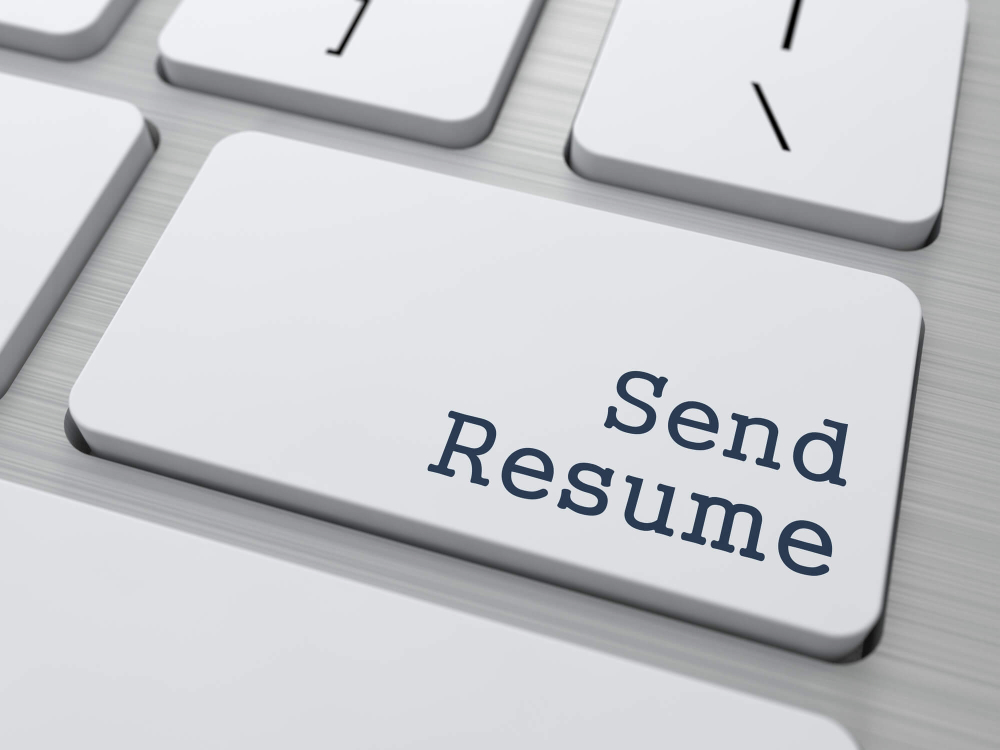
Highlighting your adaptability skills on a resume will probably increase your chances of getting an interview for jobs you’re applying to. Remember to provide examples of how this skill managed to help you in solving problems. Don’t forget to include other soft skills that might be helpful too!
It’s always good to tie down your ability skills with past job experiences in your cover letter. Consider describing how being adaptive helps in coming up with a creative solution to solve your company’s or customer’s problems.
As mentioned, all employers seek out candidates who have good adaptability skills. You can use the chance to describe your adaptiveness when your interviewers are asking about your past experiences and achievements. Hence, highlighting your adaptabilities during an interview might just help in getting you your desired job.
In conclusion, adaptability is one of the vital skills a leader must have in order to overcome this ever-changing world that we all live in. It’ll allow him/her to not be afraid of change, as well as open up their minds to new ideas and fresh angles that can help to solve the problems on hand. According to a research paper titled ‘Why Flexible And Adaptive Leadership Is Essential’, the authors Gary Yuki and Rubina Mahsud wrote that “Threats which are often unanticipated will always arise to sink an organisation, damage properties, and lives. One way an organisation can survive this threat is by responding quickly to these threats when they arise. Adaptive leadership is what every organisation need if they are to survive troubling times.”
People with good adaptability skills are those who will rise in leading the people to a successful future. It’s just as Charles Darwin once said, “It is not the strongest or the most intelligent who will survive, but those who can best manage change“.

You’re finally done catching up with all your work and tasks off your to-do list. You’ve even cleared out all the emails in your inbox, ensuring that all queries have been answered. So, you’re probably safe to step away from your office for a few days, right? Well, the answer to your questions is – crafting out an out-of-office message.
Now, what exactly are these? Out-of-office messages are autoresponder messages that notify those trying to reach you when you’re out of the office. It may seem like an easy task, but an out-of-office message states more than just when you’re away from the office. If your message is written in an unclear and vague manner, it may cause some communication issues while you’re away from your workplace.
Writing a good out-of-office message will inform your colleagues, clients, and business associates as to why you cannot respond to them immediately. It’ll also let them know when they’ll be able to reach you, and how to proceed with urgent matters in the absence of your presence. Now, don’t worry if you’ve never crafted an out of office message, we’re here to tell you all the things you need to know!
Beginning with the things to avoid in your out of office messages. A good out of office message often excludes the following details:
An automatic reply shouldn’t be too complicated. Your receiver doesn’t need to know about the exact plans of your time away from work. Simply noting that you’ll be away, let’s say for a business trip, is sufficient.
When you’re away, it’s only natural to assume that there will be work pilling up for you to attend as soon as you’re back to work. Hence, avoid setting an expectation that you’ll be able to respond to the missed message immediately upon your return. It might take you some time to finally catch up to their messages on top of all the other emails, calls, and projects when you return to the office. However, keep a lookout for all messages. You don’t want to let a message sit too long in your inbox going unanswered.
It’s important to include your colleagues’ contact information in case of emergency, but don’t ever promise their immediate assistance. You couldn’t possibly ensure how quickly your colleagues may be able to respond to your emails in your absence. In addition, make sure that you’ve gotten your colleague’s permission before including them in your messages. You don’t want to catch your colleagues by surprise!

It’s always better to include both the leave and return dates, as it informs people how long you will be away from your workplace. Your recipients probably want to know when they might get a proper response to their queries. Just think about how many emails and messages will be waiting for your return. You might take more than a day to be even able to read and reply through all the crucial messages waiting to be answered.
Always, and we repeat, always include your job title and some personal information in your out of office messages. Sometimes people may mistake you as the person in charge when they’re actually looking for your colleagues in another department. It would save their day if they could have contacted the right person sooner instead of waiting for your reply.
It’s always best to mention alternative contact information in case of an urgent matter. You should include your colleague’s name, phone number, and email address, who covers for you while you’re away. If you handle multiple scopes in the office, specify their expertise, so people know exactly who to find when needing assistance.
If you’re able to check your incoming emails from time to time while you’re out of the office, it’s better to include this in your out of office message. Similarly, if you’re never really away from work, include ways to reach you. However, if you’re unable to look or attend any emails while you’re gone, do not give people any false hope that you might be able to get back to them.
Remember when we said you should avoid giving too many details in your out of office messages? You should always include the reason for your leave but avoid being too specific on the details of your absentees.

This is probably the most common out of office message of all time. From time to time, you’ll probably take on some annual leaves, and even if you don’t, you’ll probably be forced by the HR Department to take some.
Hello!
Thank you for your email. Unfortunately, I am on vacation from [date] to [date] and will be happy to assist you in your queries upon my return. If you require immediate assistance, kindly contact our Customer Service at [email].
Hi,
As much as I would like to help, I cannot give you a quick reply. I am on my annual leave starting from [date] and will return on [date]. If you have any urgent matter, I suggest contacting [Name] at [email] for a quicker response.
Greetings,
Thank you for your email. I am away on vacation from [date] and you can expect a response when I return on [date]. Please contact [Name] at [email] or [phone] for urgent inquiries.
Hello,
I am on my annual leave and will be out of the office from [date] to [date] with limited access to my email. I will reply upon my return. For urgent matters, kindly contact [Name] at [email] or [phone] for their attention.

Sick leaves are also pretty common in any workplace. One wouldn’t be able to predict when they’ll get ill, so an out of office message is a must for this occasion.
Hello,
I’m sorry to inform you that I’ll be out of the office from [date] to [date] because of my illness. In the meantime, do contact my colleague at [email] for urgent queries. Take care!
Hi,
I’m currently unavailable and have no access to my email. I hope to return by [date] and be able to assist you as soon as possible. However, if you need any assistant before I get back, kindly contact [Name] at [email]. [Name] will be more than happy to assist you.
Hello,
Thank you for your message. I’m on of the office on medical leave from [date] to [date]. I will be checking my email from time to time, but as of urgent matter, kindly contact [Name] at [email] or [phone] for all your queries during this time. I appreciate your understanding.
Hi there,
I will be away from my desk from [date] and I hope to return by [date]. For any urgent matters, don’t hesitate to get in touch with my colleague [Name] at [email] or [phone] to answer your questions. Thank you.

This is one of those special occasions where you just don’t want to be disturbed with work emails and messages. You’re usually out of the office for a long time, so make sure to include the fact that you wouldn’t be monitoring your emails during your time away.
Hello,
I’m on maternity/paternity leave and have no access to my email between [date] and [date]. During my time away, do contact [Name] for any urgent matters.
Dear Sir/Madam,
I have gone on paternity leave from [date] to [date]. During my absence, [Name] will be covering for me. You can reach him/her by sending an email to [email].Thank you for your kind understanding.
Greetings,
Thank you for your message. I’m out of the office from [date] to [date] for maternity leave. If you need assistance while I’m away, please contact [Name] at [email] or [phone] for any queries. He/She will be happy to help.
Hello,
I will be away from the office due to maternity leave, with no access to my email. I’m away from [date] and will be returning on [date]. For any immediate assistance, you may reach me at [phone].

If you leave your office for work-related travel, you should still be able to receive emails and respond to them. However, you should make it clear that your responses will be slightly delayed.
Hi,
I’m currently attending a training session from [time/date] to [time/date]. I will be checking my emails in between sessions. It might take a while for me to respond. For any urgent matters, please call [phone].
Dear recipient,
Thank you for your message. I’m out of the office attending the [event] conference in [place]. I’ll be checking my inbox periodically, but please contact me at [phone] if you need immediate assistance.
Hello,
I’m currently unavailable as I’m attending [event] from [time/date] to [time/date]. Though it might take a while, I’ll respond to you once available. For immediate response, please call at [phone]. Thank you.
Hi,
Thank you for your message. I’m currently at [event] and will be sure to check my email in between sessions. I apologise if my reply might take longer than usual. I will be able to respond in a timelier manner after the event starting from [time/date]. In the meantime, kindly contact [Name] at [email] for any urgent matters.

Sometimes, a short and professional out of office message is all you need to communicate the main reasons for your absence.
Hi,
Thank you for your email. I will be away from the office from [date] to [date]. I have limited access to my email and will not be able to respond immediately. Kindly contact [Name] at [email] or [phone] for urgent queries.
Hello,
I’m out of the office from [date] until [date] with no access to my email. Please contact [Name] at [email] or [phone] if you require immediate assistance.
Greetings,
I’m currently away from the office starting [date] to [date]. I will be checking my email from time to time. However, if there are any urgent matters to be attended to, kindly call [phone].
Dear recipient,
I will be away from my desk from [date] to [date]. For any urgent matters, you can contact [Name] at [email] or [phone]. Thank you for your understanding.
Having an out of office message shows your professionalism in handling work emails even when you’re gone. A thoughtful automated response is a thoughtful way of letting people know how long you will be away and when they can expect a reply. Receiving an out of office message can surely reassure them that their queries will not go unnoticed.
However, keep in mind that the out of office messages are supposed to be helpful and not hinder you and anyone looking for you. Even If you’re someone who regularly clears out your inbox messages, all these messages while you’re away will probably take more than just a day for you to attend. So (and we can’t stress this enough), DO NOT set unrealistic expectations for your recipients.
Lastly, out of office messages are more than just a formality. Set it up accordingly, and it’ll be working for you in answering simple questions of “Why you’re away?” and allows you to be worry-free of the emails that come in while you’re away.